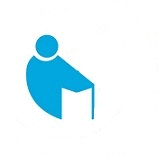Rotator cuff injury
The rotator cuff is a group of muscles and tendons that surround the shoulder joint, keeping the head of your upper arm bone firmly within the shallow socket of the shoulder. A rotator cuff injury can cause a dull ache in the shoulder, which often worsens with use of the arm away from the body.
Rotator cuff injuries are common and increase with age. These may occur earlier in people who have jobs that require repeatedly performing overhead motions. Examples include painters and carpenters.
Many people with rotator cuff disease can manage their symptoms and return to activities with physical therapy exercises that improve flexibility and strength of the muscles surrounding the shoulder joint.
Sometimes, rotator cuff tears may occur as a result of a single injury. In those circumstances, medical evaluation should be provided as soon as possible to discuss the role of surgery. Extensive rotator cuff tears may not be fixable, and transfer of alternative tendons or joint replacement may be possible.
Symptoms
The pain associated with a rotator cuff injury may:
- Be described as a dull ache deep in the shoulder
- Disturb sleep
- Make it difficult to comb your hair or reach behind your back
- Be accompanied by arm weakness
Causes
Rotator cuff disease may be the result of either a substantial injury to the shoulder or to progressive degeneration or wear and tear of the tendon tissue. Repetitive overhead activity or heavy lifting over a prolonged period of time may irritate or damage the tendon.
Risk factors
The following factors may increase your risk of having a rotator cuff injury:
- As you get older, your risk of a rotator cuff injury increases. Rotator cuff tears are most common in people older than 60.
- Construction jobs.Occupations such as carpentry or house painting require repetitive arm motions, often overhead, that can damage the rotator cuff over time.
- Family history.There may be a genetic component involved with rotator cuff injuries as they appear to occur more commonly in certain families.
Complications
Without treatment, rotator cuff problems may lead to permanent loss of motion or weakness, and may result in progressive degeneration of the shoulder joint. Although resting your shoulder is necessary for your recovery, keeping your shoulder immobilized for a prolonged time can cause the connective tissue enclosing the joint to become thickened and tight (frozen shoulder).
Treatment
Conservative treatments — such as rest, ice and physical therapy — sometimes are all that’s needed to recover from a rotator cuff injury. If your injury is severe, At Alimran Medical Center, we may recommend any of the following treatments
Regenerative medicine treatment (Prolotherapy)
- Electrical stimulation
- Short and long wave
- Laser therapy
- Ultrasonic therapy
- Magnatic therapy
- Exercises
Chiropracti
